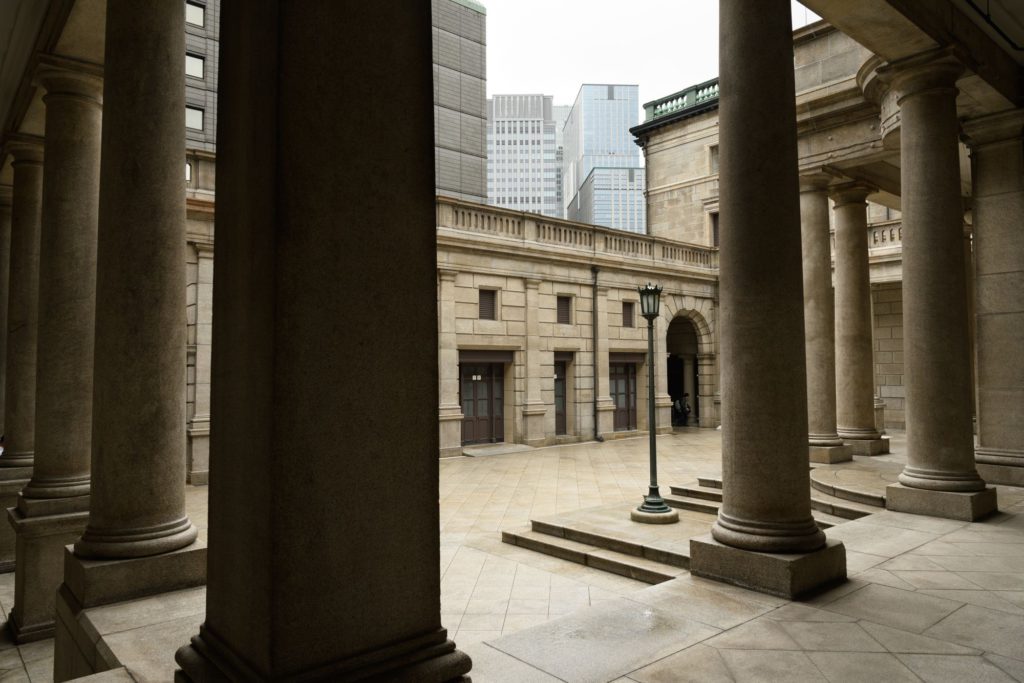(Bloomberg) — Sign up for the New Economy Daily newsletter, follow us @economics and subscribe to our podcast.
Bank of Japan Governor Haruhiko Kuroda reaffirmed the importance of a concerted policy mix that supports the economy, ahead of a key ruling party election that is almost certain to determine the country’s next prime minister. Speaking after the BOJ left its policy unchanged and fleshed out more details of its green lending program, Kuroda emphasized the need to keep supporting the economy amid ongoing risks from the pandemic, including supply-side constraints.
Wednesday’s stand-pat decision comes a week before a ruling party election to pick Prime Minister Yoshihide Suga’s successor. The new leader of the Liberal Democratic Party is expected to put together a stimulus package to help the economy get back on a firmer recovery track.
In a busy week for central banks, the Federal Reserve concludes its own meeting just hours after the BOJ gathering and is likely to offer clues about its tapering plans that could keep downward pressure on the yen or lead to a short-term lift depending on how sanguine Jerome Powell is on the economy.
For now, the BOJ looks highly unlikely to join any early moves to scale back stimulus, whoever replaces Suga, especially with Japan’s inflation still below zero.
What Bloomberg Economics Says…
“The Bank of Japan probably has little choice but to keep stimulus at the current magnitude, given tough economic conditions… Its green policy shows it’s experimenting with new approaches, but the thrust of its stimulus policy is unlikely to change much in the foreseeable future.”
–Yuki Masujima, economist
To read the full report, click here.
Kuroda declined to comment directly on the leadership battle, but he pointed to the success of the close cooperation between the government and the central bank since a joint statement issued two months before he became governor in March 2013.
“The joint statement has played a major role in supporting Japan’s economy,” said Kuroda, who will become the bank’s longest-serving governor on the day of the LDP vote. “The BOJ intends to continue conducting monetary policy appropriately in line with the statement.”
Still, Kuroda didn’t completely rule out revisiting the statement with the government after a new prime minister is installed. The joint accord commits the central bank to achieve 2% inflation, a goal that some of the leadership candidates appear less committed to than previous premiers.
“Kuroda won’t adamantly refuse to discuss the price target if the government broaches the issue,” said Shigeto Nagai, Japan head at Oxford Economics and a former top official at the BOJ’s international department.
Front runner Taro Kono, Japan’s vaccine czar, sees the BOJ’s 2% target as very hard to hit and has in the past called on the central bank to spell out its exit strategy from stimulus. Still, with the pandemic continuing to weigh on the economy, the winner of the leadership election is unlikely to be in a rush to change BOJ policy.
Nagai sees the goal staying, given the prevalence of 2% inflation targets globally, though it could be made some kind of longer-term goal in Japan.
Read more: Kuroda and His Monetary Experiment Roll On in Record BOJ Tenure
Earlier in the day, the BOJ flagged that supply-side constraints were limiting the recovery in production and exports.
Conditions have deteriorated for the manufacturers that have powered the recovery. Toyota Motor Corp. and other Japanese automakers have announced factory stoppages due to shortages of semiconductors and other parts as the impact of Covid crimps Asia’s supply networks.
Kuroda said it was unclear how long the impact from stoppages in Southeast Asia’s production would last as countries try to bring the delta outbreak under control, but signs of a recovery were emerging.
His comments will reinforce the view that, while the central bank won’t be adding to its measures, it will continue its stimulus. That will leave any extra help for the economy up to the government.
Read More: Japan’s Leadership Rivals Diverge on Economic Paths After Covid
With a general election looming and Japan’s emergency-state economy still struggling to rebuild momentum, analysts expect an economic package to rank near the top of the new leader’s list of priorities.
“I don’t think the BOJ is trying to nudge a new LDP leader into compiling a massive economic package, but whoever wins the election, the size of fiscal spending will be at least 30 trillion yen ($274 billion). They have a national election to fight,” said Yuichi Kodama, chief economist at Meiji Yasuda Research Institute.
The central bank also unveiled more details of its green lending program. The BOJ said it would start accepting applications immediately and begin making the loans in December. Kuroda said he expected the program to start small, but eventually reach a substantial size.
(Adds economist comments, details of green lending program.)
More stories like this are available on bloomberg.com
©2021 Bloomberg L.P.











